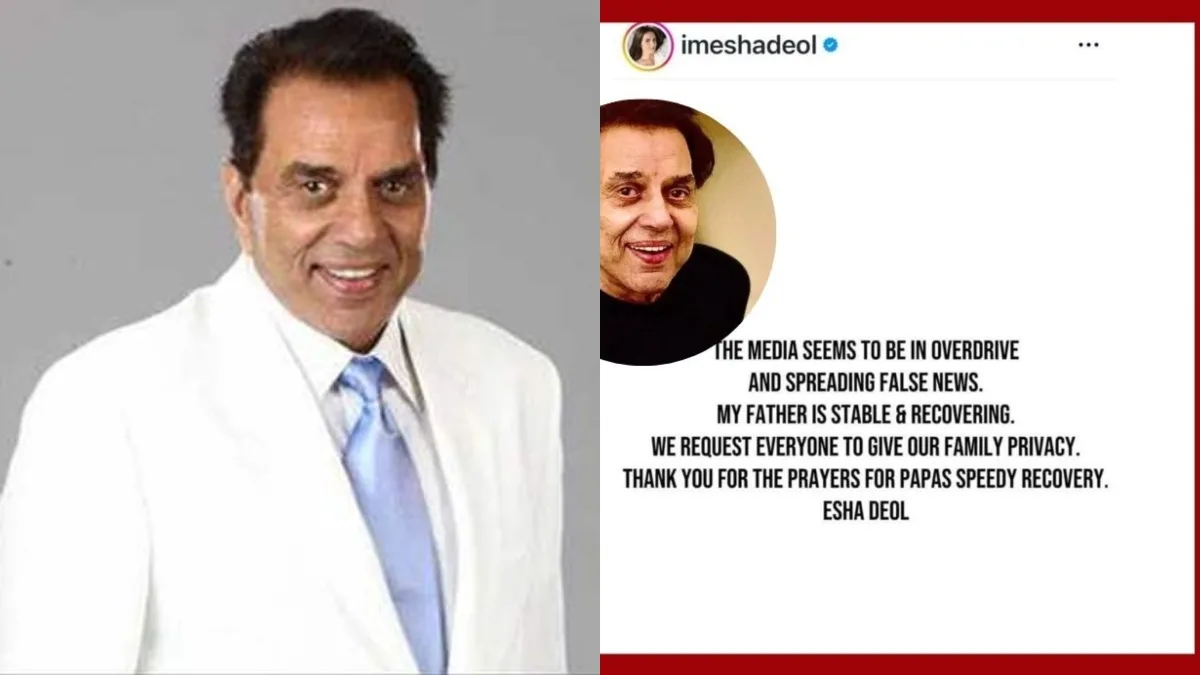Last week’s false reports about veteran actor Dharmendra’s death once again exposed the rot within India’s digital news ecosystem. The news spread like wildfire, amplified by dozens of unverified posts, fan tributes and misleading headlines. Within hours, the rumour had taken a life of its own, forcing the actor’s family to step in and stop the chaos.
It was Hema Malini, Dharmendra’s wife and fellow actor, who finally broke the silence. Condemning the fake news, she said that such fabrications were “unforgivable” and appealed to people not to spread unverified information. Her statement restored some calm but also reignited a larger conversation on how digital-age journalism has turned into a race where verification often comes second to virality.
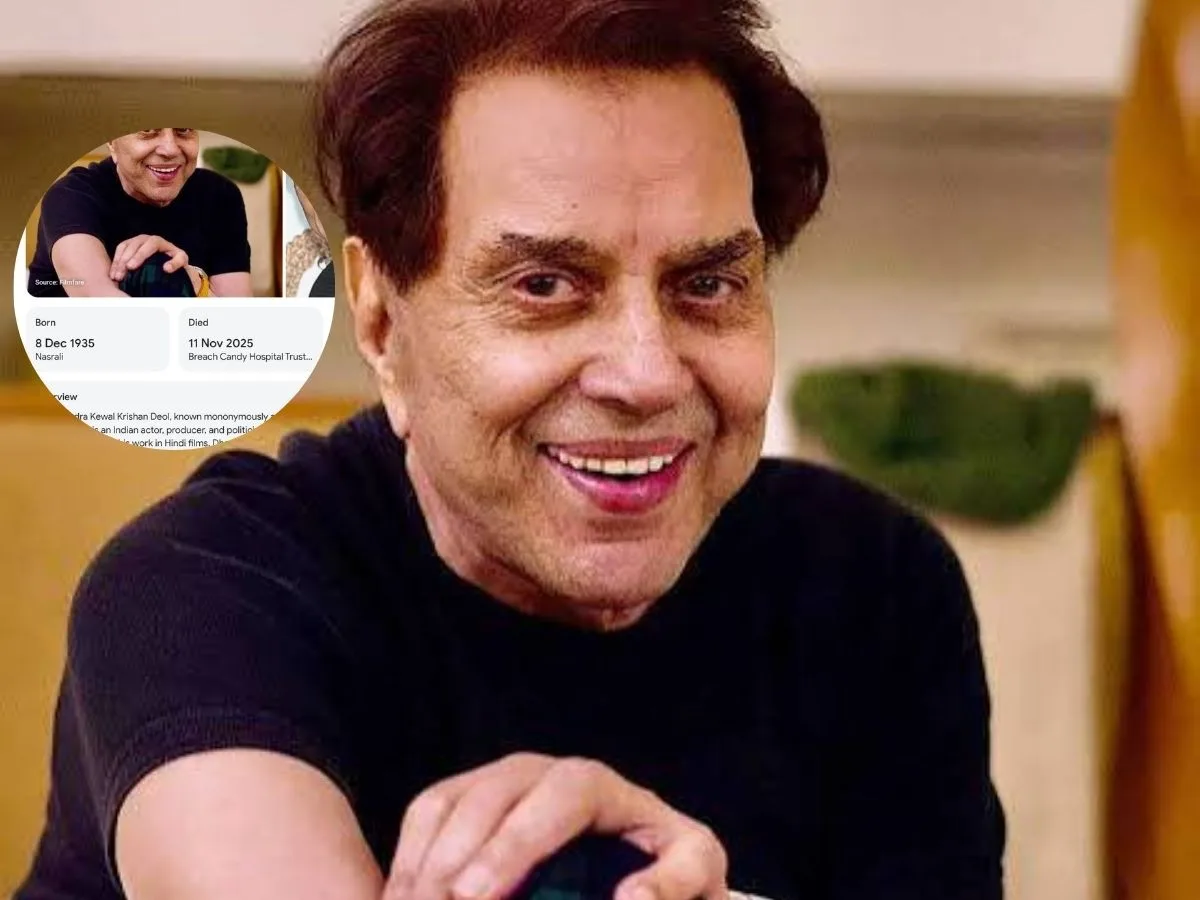
The incident became a case study of how the need to be first can often come at the cost of being right. News portals, influencers and even some entertainment reporters hastily picked up the story without official confirmation. Within minutes, the rumour turned into an “obituary,” and the audience, conditioned by social media’s urgency, responded emotionally before reason could intervene. By the time fact-checkers debunked it, the false news had already reached millions.
This wasn’t the first time such misinformation shook the industry. Over the years, several actors have fallen prey to premature obituaries. In 2016, similar hoaxes targeted Dilip Kumar, whose health updates often became clickbait. In 2022, Lata Mangeshkar’s family had to issue clarifications multiple times before her actual demise, as rumours of her “critical condition” flooded timelines. Even icons such as Amitabh Bachchan and Rajinikanth have faced such baseless reports.
Each instance chips away at public trust in the media. The entertainment beat, once defined by exclusive interviews and thoughtful critiques, has increasingly become a realm where “breaking news” thrives on speed, not accuracy. Journalists, particularly in online platforms, are now caught in a system that rewards immediacy over integrity. As a result, a single unverified tweet can snowball into nationwide panic within minutes.
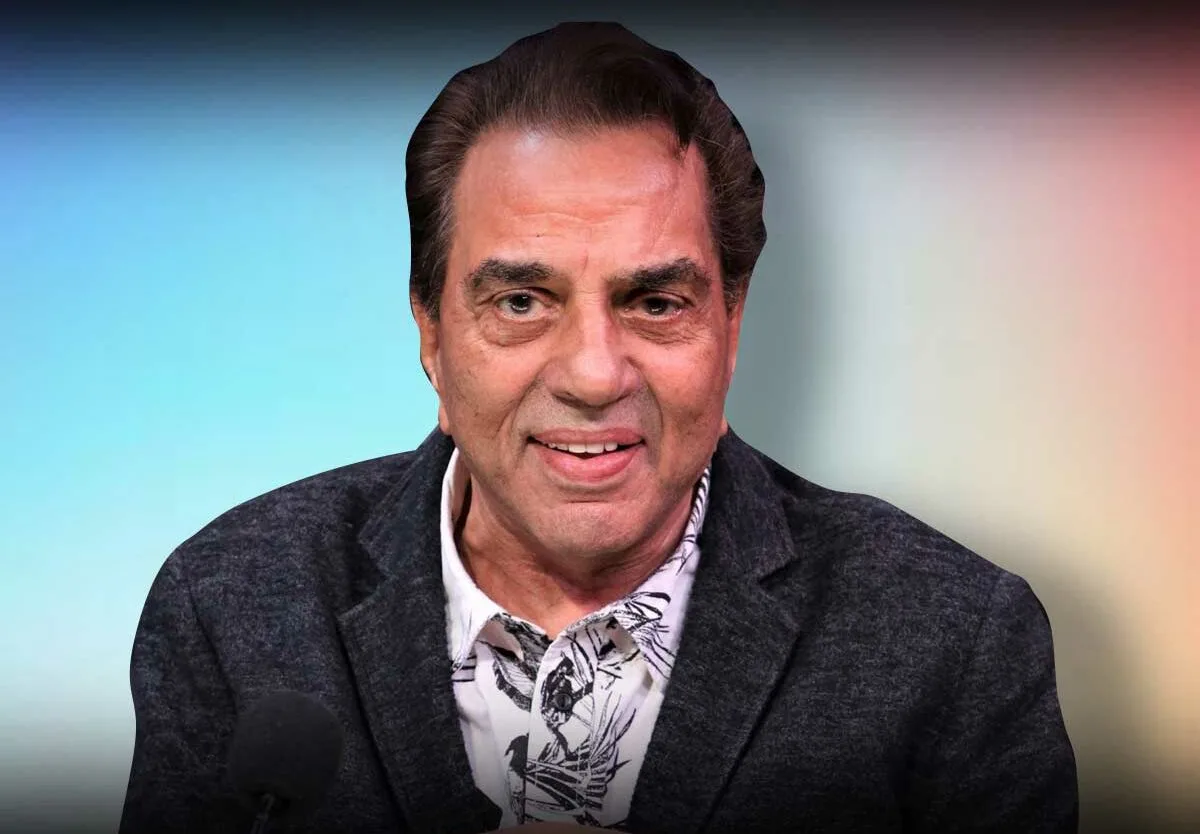
For public figures like Dharmendra, the emotional toll is immense. Beyond the personal distress caused to their families, such fake news also disrupts their relationship with the public. Actors who once relied on the media to convey genuine updates now hesitate to engage, fearing misrepresentation or sensationalism. This breakdown of trust harms both sides, the stars, who become victims of rumours and the audiences, who grow increasingly cynical of everything they read.
In Hema Malini’s words, calling the situation “unforgivable” was a reflection of frustration with a news culture that seems to have lost its ethical compass. Her statement reminded both journalists and readers that death, especially, is not a subject for speculation or online engagement. When rumours of such magnitude circulate unchecked, they do more than misinform, they desensitise people to the value of truth and empathy.
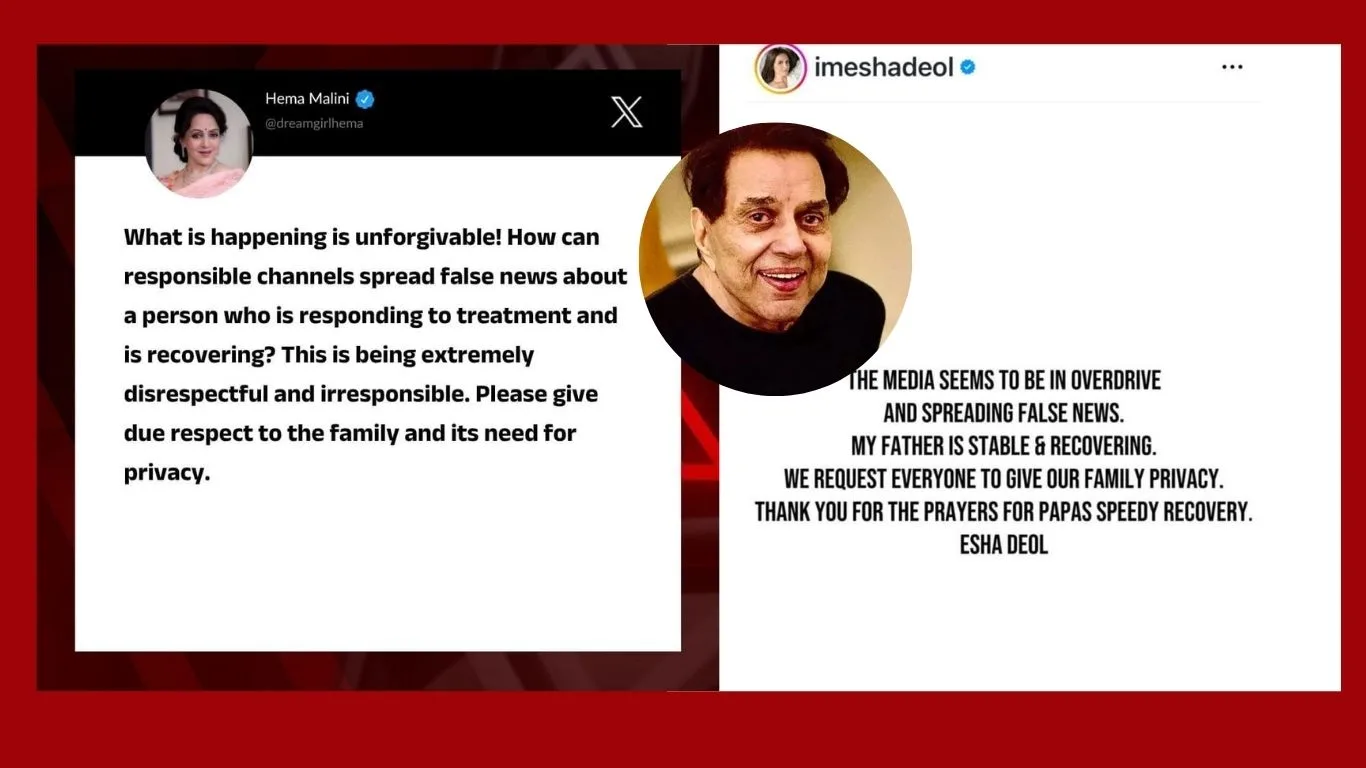
The “minute-by-minute” style of modern journalism has turned every update into a potential scoop. But this speed-based reporting has blurred the line between news and noise. What once required confirmation from official sources now depends on trending keywords and viral posts. In the process, even established outlets risk their credibility by amplifying falsehoods under the guise of urgency.
The curious case of Dharmendra’s fake death is therefore not just about one actor, it’s a reflection of how newsrooms have evolved in the digital era. The audience too plays a role, often forwarding or reposting stories without pausing to verify them. This collective negligence has created an ecosystem where misinformation thrives and outrage becomes a substitute for truth.
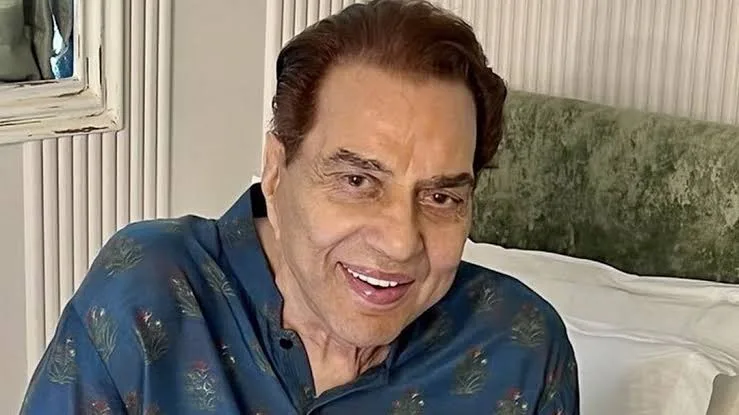
In the end, Hema Malini’s firm response stood in stark contrast to the chaos that surrounded the incident. Her words served as a reminder that in the pursuit of “being first,” journalism has forgotten the dignity of being right. For an actor like Dharmendra, who has entertained generations, the least the media owes him, and others like him, is the courtesy of truth.


